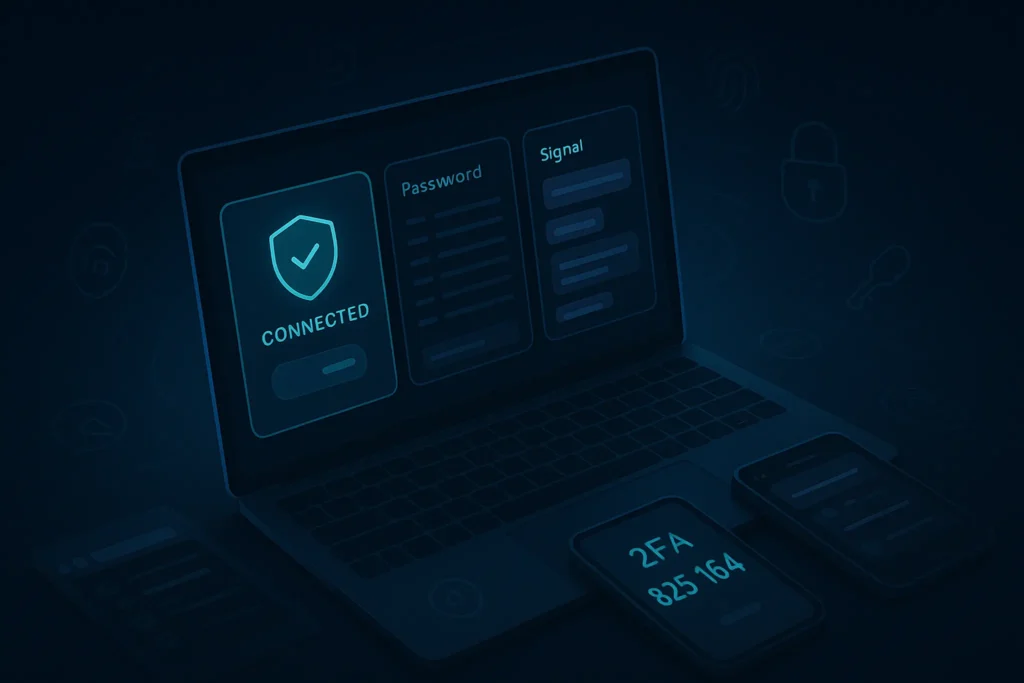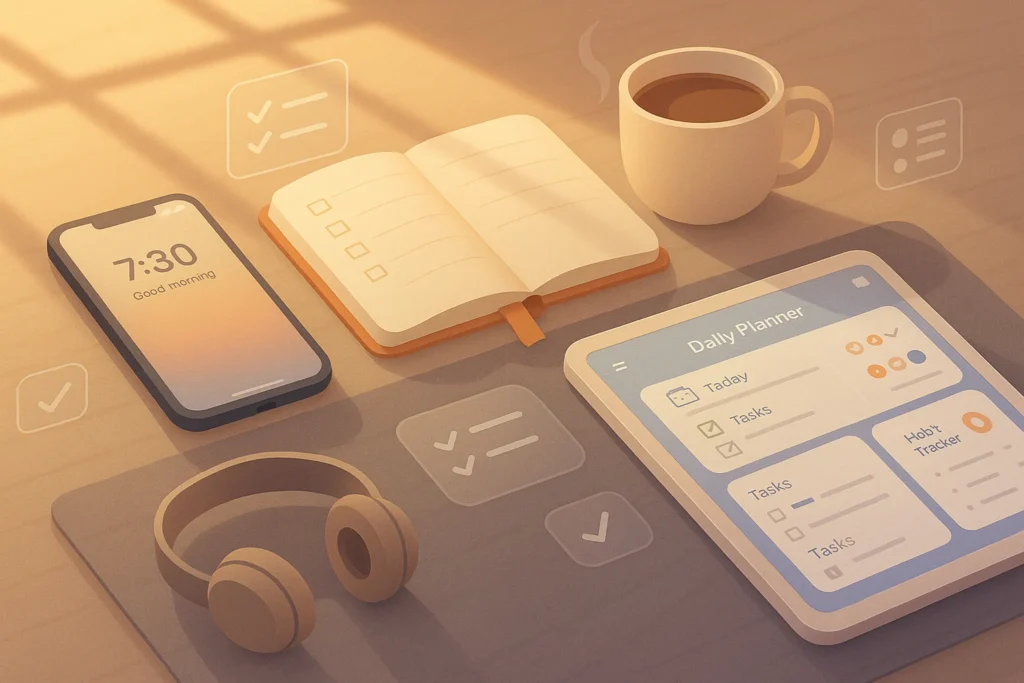🧠 Intro: Why Privacy Matters More Than Ever in 2025
Your data is currency—and in 2025, surveillance capitalism is stronger than ever.
Every click, like, and GPS ping is logged, analyzed, and sold. From aggressive ad tracking to silent background scraping, your online life is exposed more than you think.
But here’s the good news: you can fight back—with smart tools and habits.
This guide shares battle-tested privacy tips that go beyond the basics. Whether you’re a freelancer, entrepreneur, or just privacy-conscious, here’s how to build digital walls around your personal life.
🔐 Pro Tip 1: Use a Privacy-First Browser
Google Chrome might be fast—but it’s also a data-harvesting machine. Instead, use browsers designed for privacy:
🦁 Brave Browser
Blocks ads, trackers, and cross-site cookies by default. Includes built-in Tor browsing for advanced anonymity.
🦊 Firefox + Extensions
Install these to harden it:
-
uBlock Origin
-
Privacy Badger
-
CanvasBlocker
-
Decentraleyes
Also disable WebRTC and telemetry inside settings.
✅ Want more ways to control your digital habits? Our guide on How to Organize Your Digital Life breaks down browser hygiene and data-minimizing apps.
🧱 Pro Tip 2: Always Use a VPN on Public Wi-Fi
Free café Wi-Fi may be convenient, but it’s also a hacker’s hunting ground. A VPN encrypts your traffic and hides your IP—even from your ISP.
Look for:
-
No-log policy
-
Strong encryption (WireGuard, OpenVPN)
-
Kill switch + split tunneling
Recommended VPNs (2025):
✅ Mullvad (privacy-first, no email needed)
✅ Proton VPN (open-source, audited)
✅ Surfshark (value-for-money, solid speed)
Pairing a VPN with a smart router or mesh system? Check out Smart Home Security to learn how VPNs integrate with home devices.
🔑 Pro Tip 3: Use Strong Passwords + a Real Password Manager
Weak passwords are still the #1 entry point for most cyber attacks.
Avoid using Chrome’s built-in password manager. Instead, go for secure, audited options:
-
Bitwarden – Open-source, cross-platform, free tier
-
1Password – Premium design + excellent autofill
-
KeePassXC – For advanced users who prefer offline tools
Features to look for:
-
Encrypted vault
-
Biometric access
-
Emergency access features
-
Secure sharing
🔐 Want a full comparison? See Password Managers Compared for in-depth pros and cons of each major app.
📲 Pro Tip 4: Use Secure Messaging Apps
Not all messaging apps are created equal.
If you’re still using WhatsApp or Messenger, know this: while they use end-to-end encryption, they’re owned by companies with a history of data collection and metadata harvesting.
🛡️ Recommended Private Messengers (2025):
-
Signal: Open-source, E2E encrypted, no metadata storage
-
Element (Matrix): Decentralized and great for communities
-
Session: No phone number needed—fully anonymous
Look for apps that are:
-
Open source
-
Not owned by data-hungry corporations
-
Support disappearing messages + no cloud backup by default
🔒 Want to Stay Ahead of Privacy Threats?
Subscribe to our free newsletter and get actionable tips on online privacy, cybersecurity tools, and smart digital habits—delivered every week.
No spam. Just sharp insights for privacy-minded creators, solopreneurs, and digital nomads.
🔐 Pro Tip 5: Enable Two-Factor Authentication Everywhere
Passwords can be cracked. With 2FA, even if someone gets your login, they can’t access your account.
Avoid SMS-based codes—they can be intercepted. Use:
-
Authy
-
Aegis Authenticator (Android)
-
Raivo or 2FAS (iOS)
Use 2FA on:
-
Email
-
Cloud storage
-
Bank/crypto apps
-
Social media platforms
-
Productivity tools (Notion, Trello, Google)
2FA = one small habit, massive protection.
⚙️ Pro Tip 6: Audit Your Social Media Privacy Settings
You’d be surprised how much personal data your social platforms leak by default.
Go through:
-
Who can see your posts?
-
Who can tag you?
-
Can apps access your contacts/location?
-
Is facial recognition active?
On platforms like Facebook, Instagram, X (Twitter):
-
Turn off ad personalization
-
Disable location tagging
-
Delete search and voice history
-
Review third-party app access
These tweaks may seem small—but over time, they dramatically reduce your data exhaust.
For related tips, check Cybersecurity Tips – especially if you run a public profile or online business.
📦 Pro Tip 7: Minimize Data Exposure Wherever Possible
Small digital habits can make a big difference:
| Problem | Solution |
|---|---|
| Email overuse | Use aliases via SimpleLogin or DuckDuckGo Email |
| Account clutter | Use JustDelete.me to clean up unused accounts |
| Ad tracking | Use Privacy Sandbox blockers and DNS-level filters |
| Data brokers | Opt-out via DeleteMe, Incogni, or manual requests |
💡 Don’t overshare. The less you give out, the less you have to defend.
🧠 Smart Digital Habits to Adopt Today
-
✅ Use different passwords for every service
-
✅ Clear cookies + site data weekly
-
✅ Don’t use Facebook to log into other sites
-
✅ Say no to unnecessary app permissions
-
✅ Update software regularly
Your privacy isn’t just a setting—it’s a daily habit.
🧰 Privacy Starter Stack – Your Free Toolkit (2025 Edition)
🧰 Build Your Privacy Wall — 100% Free Stack to Start
| 🔒 Category | 🛠️ Tool | 💡 Why It Matters |
|---|---|---|
| Browser | Brave or Firefox | Blocks ads and trackers by default |
| VPN | Proton VPN (Free Tier) | Encrypts data on public Wi-Fi |
| Messaging | Signal | Open-source and end-to-end encrypted |
| Password Manager | Bitwarden | Easy-to-use and secure vault |
| 2FA | Aegis Authenticator | More secure than SMS codes |
| Email Alias | SimpleLogin | Protect your real inbox from tracking |
✅ Tip: Start with this stack. Upgrade as your awareness and needs grow. Small changes compound into real protection.
📧 Bonus Pro Tip: Switch to a Privacy-Centric Email Flow
Most people still use Gmail or Yahoo—both of which scan your inbox and enable aggressive profiling.
Instead, try a privacy-first email setup:
-
✉️ ProtonMail – End-to-end encrypted, Swiss privacy laws
-
🔐 Tutanota – No tracking, no ads, zero-access design
-
🦆 DuckDuckGo Email Protection – Free alias forwarding with tracker blocking
-
💡 SimpleLogin – Create burner aliases for shopping/newsletters
Stop giving your real email to every website.
Use aliases, protect your identity, and break the data chain before it forms.
🧠 Nerd Verdict
Online privacy in 2025 is not about paranoia—it’s about control.
The more intentional you are with your digital footprint, the less vulnerable you’ll be to data brokers, hackers, or surveillance models.
This isn’t a one-time fix. It’s a lifestyle shift. Start small. Be consistent. Privacy is freedom.
❓ FAQ: Nerds Ask, We Answer
💬 Would You Bite?
Which of these privacy tips have you already applied?
And what’s one online habit you know you should change but haven’t yet?👇 Let’s build better digital habits together—share below.



